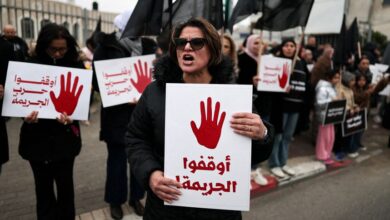Hamas premier Ismail Haniya left the Gaza Strip for a regional tour on Sunday for the first time since Israel and Egypt imposed a siege in 2007, his office said.
Sources in Haniya's office told AFP that he would visit Egypt and Sudan, after which he plans to go to Qatar, Turkey, Tunisia and Bahrain.
The primary purpose of the trip was to obtain "help and aid" to rebuild Gaza City, but Haniya was also likely to address the issue of Palestinian reconciliation in talks, they said.
Haniya entered Egypt through the Rafah crossing, recently opened after remaining largely shut since June 2006 when Israel imposed a blockade after militants snatched soldier Gilad Shalit, who was freed in October in a prisoner swap.
The blockade was tightened a year later when the Islamist Hamas seized control of the territory, ousting forces loyal to the Western-backed Palestinian Authority.
Egypt had largely complied with the restrictions, although it occasionally opened Rafah — the only Gaza crossing that bypasses Israel — to allow aid in and students and medical cases out.
In May, Egypt officially reopened its Rafah border crossing with Gaza, more than three months after Egypt's former President Hosni Mubarak resigned, allowing people to cross freely for the first time in four years.
Haniya's regional tour begins three days after Palestinian factions, including Hamas, met in Cairo to thrash out implementation of a surprise deal they signed in April.
The two factions had previously been at loggerheads ever since Hamas seized Gaza in 2007, leaving the Palestinian territories with rival administrations.
On Thursday, Palestinian president Mahmoud Abbas and Syria-based Hamas chief Khaled Meshaal discussed reforming the Palestinian Liberation Organization, in a bid to allow the Islamist movement and 13 other Palestinian factions to join.
But cracks have emerged lately between the Damascus and Gaza branches of Hamas regarding future strategy.
Last month, Meshaal voiced support for "popular peaceful resistance," which presumes that Hamas would ultimately renounce armed struggle against Israel.
He also said he was open to the creation of a Palestinian state in the territories occupied by Israel since 1967, including the West Bank and the Gaza strip with east Jerusalem as its capital.
Such a strategy in effect calls for a Palestinian state next to, and not in place of, Israel, and would be a departure from the position held by Hamas since its founding 24 years ago.




